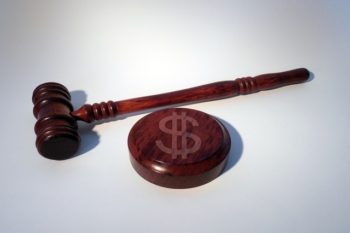
Unsecured creditors, like credit card lenders, must obtain a judgment against you before they can attach assets in satisfaction of past-due debts. They do this by suing you for what you owe. Most people rightfully owe the debt and fail to respond to the collection lawsuit. As a result, the court enters a judgment, which is the court’s determination that you owe what the creditor says you do.
The phrase “judgment proof” refers to a person who has no assets or income that can be taken to satisfy a judgment against them. However, technically speaking, there is no such thing as “judgment proof.” You can always be sued and a judgment will be obtained against you if you lose. But, if you do not have the ability to pay a creditor who has won a lawsuit against you, then you are considered judgment proof. In other words, if you are judgment proof, you have nothing to lose. Moreover, if your creditors are aware that you are judgment proof, they may be less likely to pursue a judgment against you.
The basics of what it means to be judgment proof are explored below, however, if you are concerned about being sued by a creditor, or you want to know whether a creditor can collect on a judgment against you, you should consult with an experienced bankruptcy attorney.
How Do I Know if I am Judgment Proof?
A person is only judgment proof if there are absolutely no avenues available for a creditor to collect a debt. For example, California exemption laws [1] allow for single debtors to protect up to $75,000 of equity in a home. If your only asset is a home with only $25,000 of equity, you are judgment proof. None of your assets can be taken by creditors in satisfaction of past-due debts. Although, an Abstract of Judgment can be recorded that acts as a lien against your home and accrues interest for the time it goes unpaid.
Moreover, there are many other forms of property that your creditors can take besides your home. Any non-exempt property that you own can be taken to satisfy your debts. Exempt property is anything that your creditors are unable to take. For example, under federal law, up to $3,675 in value of a motor vehicle may be exempt. 15 USC § 522. This means that your vehicle is protected up to $3,675 if federal exemptions apply to your case. In this scenario, if your car is worth less than that, the asset is judgment proof.
Even if you have no hard assets that a creditor can take, they may be able to come after you in other ways, such as wage garnishment [2], or a bank account levy. Furthermore, judgments usually last for a period of 10 years. Even if you are judgment proof, insolvency may not last forever, and your debts can be collected as soon as you acquire assets that your creditors can take.
What is Wage Garnishment?
Many people believe that creditors can only come after their property, such as their home or car to collect a debt. This is simply not true. Wage garnishment occurs when a creditor receives a court order saying that your employer is required to take money directly out of your paycheck and send it to your creditors. Therefore, if you are employed, you may not be judgment proof even if you own no assets.
If you have an income, not all of your wages can be taken through wage garnishment and wage garnishment is not available in all states. In most cases, federal law only allows for as much as 25% of your wages to be withheld and sent to your creditors. 15 USC § 1673. Moreover, only your disposable earnings can be withheld. Disposable earnings are what you have left over after mandatory deductions (like taxes) are taken out of your paycheck. 15 USC § 1672.
Additionally, there are some forms of income that cannot be garnished, and thus, if you are receiving income from one of these sources, you may still qualify as judgment proof. The following forms of income may not be garnished:
- Social Security benefits
- Disability benefits
- Illness benefits
- Unemployment benefits
- Public assistance benefits
- Veterans benefits
- Child support/spousal support
- Federal retirement benefits
California Wage Garnishment Laws
This article discusses only federal wage garnishment laws, however, most states have their own laws. We break down California’s wage garnishment laws a bit further on our blog, which include the following:
- The first party to achieve a garnishment order has priority if you have more than one wage garnishment order against you.
- The maximum that can be garnished from your paycheck is 25% of disposable earnings, or the amount by which your weekly disposable earnings exceed 40 times the minimum wage — whichever is less.
- As much as 65% of your disposable earnings can be deducted if you owe money to support a child.
- If you owe taxes to the state of California, they can garnish up to 25% of disposable earnings.
- You can object to a wage garnishment on the basis of hardship under California law.
Can I Still be Sued If I am Judgment Proof?
You can still be sued even if you are judgment proof. Your creditors may sue you, and obtain a judgment against you in the hopes that they can come after your property if and when you become solvent again. In many instances a judgment can be renewed, meaning that even if you were once unable to pay, your creditors may seek to enforce the judgment as soon as you can pay.
Here at Borowitz & Clark, we can help. We have experienced bankruptcy attorneys who can review your case for free, no obligation. Stop the stress caused by debt collectors. Contact us today.